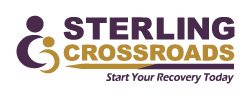When someone you love might be using heroin, it’s hard to know what to do—or even what to look for. You may be wondering how to tell if someone is doing heroin, or if the changes you’re noticing are part of something more serious. Spotting the signs of heroin addiction early can make all the difference. At Sterling Crossroads in Kentucky, we understand how difficult this situation can be, and we want you to know that recovery is not only possible—it’s closer than you think. If you’re searching for heroin rehab in Mount Sterling, KY, you’re already taking a decisive step toward supporting someone’s healing.
You don’t have to wait until things get worse. Keep reading to learn more about the behavioral, physical, and emotional warning signs of heroin use and how to take action when you’re ready. We’re here for your family—and we’re ready when you are.
How does heroin addiction progress?
Heroin is a highly addictive opioid that rewires the brain’s reward system, often after just a few uses. Over time, a person needs more of the drug to feel the same effects, leading to dependence and, eventually, addiction. Heroin’s short-term high leads to long-term changes in judgment, behavior, and physical health. Heroin addiction can even lead to fatal overdoses.
Provisional data from the United States Centers for Disease Control and Prevention (CDC) ’s National Center for Health Statistics shows an estimated 107,543 drug overdose deaths in the U.S. during 2023. While this number remains deeply concerning, there are signs of progress. Overdose deaths involving opioids decreased from an estimated 84,181 in 2022 to 81,083 in 2023. But there are still challenges ahead, with more people losing their lives to overdoses involving substances like cocaine and methamphetamine.1
Despite the slight decrease in overdose deaths attributed to opioids, heroin and other opioids still pose an increasing danger. Early intervention can be critical in saving lives, and there is a growing focus on expanding access to treatment and harm reduction services.
What are the signs of heroin addiction?
What are the signs that someone is using heroin? It’s not always obvious when someone is using heroin. Many people go to great lengths to hide it. But over time, addiction often impacts a person’s behaviors and habits in ways that are difficult to ignore.
Behavioral warning signs of heroin use
Keep an eye out for these signs:
- Pulling away from family and friends
- Being more secretive than usual
- Changes in daily routines
- Struggling with money
- Letting responsibilities slip
These behaviors often start small but can grow over time. Most of the time, it’s someone close who notices them first.
Physical signs of heroin addiction
Heroin use affects the body in noticeable ways—some of which may not be immediately obvious if the person is trying to hide them.
Physical signs include:
- Track marks: Small puncture wounds on arms, hands, legs, or feet
- Sudden weight loss: Often due to appetite suppression and neglect of nutrition
- Nodding off: Falling asleep during conversations or at odd times
- Flushed or itchy skin: May scratch excessively or appear irritated
- Constricted pupils: A consistent indicator, even in dark settings
As heroin use continues, people may appear disheveled or unkempt. They might stop caring for themselves the way they once did.
Emotional and mental health changes
Addiction doesn’t just impact the body—it affects the mind and emotions as well. Someone using heroin might seem like a different version of themselves.
Emotional warning signs include:
- Mood swings: Quick shifts between euphoria and deep sadness or anger
- Depression or apathy: Losing interest in life or feeling hopeless
- Anxiety or paranoia: Becoming fearful or distrustful without a clear cause
- Personality changes: Acting differently from their usual self—more irritable, flat, or volatile
These emotional shifts often mirror the cycle of heroin use: brief highs followed by long, painful lows. Over time, mental health conditions can worsen without treatment.
What can you expect from professional help?
If you’re noticing several of these signs, it may be time to reach out for professional support. Heroin addiction rarely gets better on its own. Detoxing without medical care can be dangerous, and relapse is common when trying to quit cold turkey.
Instead, a recovery program like the one offered at Sterling Crossroads can provide:
- Medication-assisted treatment (MAT): Helps reduce cravings and manage withdrawal with medications like Suboxone or Sublocade
- Intensive outpatient care: Offers a structured, supportive environment while allowing people to maintain their daily routines
- Individual and group therapy: Creates space to explore the roots of addiction and begin healing emotionally
Our approach is rooted in the belief that restoring health and well-being to individuals strengthens families and communities. And it’s never too early—or too late—to ask for help.
How do you approach a loved one who may be using heroin?
Talking to a loved one about a possible heroin addiction is never easy, but it’s an act of love and care. Pick a moment when they’re calm and sober. Approach the conversation with compassion and an open heart—they need to feel your support, not judgment. Timing and kindness really matter here.
When addressing the issue, be honest without sounding accusatory. Using “I” statements, such as “I’m worried about you,” can feel less confrontational than saying, “You’re ruining everything.” This approach fosters a more open dialogue and reduces defensiveness.
It’s so important to offer support rather than ultimatums. Let them know you’re there for them and remind them that help is available. At the same time, it’s okay—and necessary—to say no to behaviors that could hurt them. Setting boundaries is a way of showing love, even if it’s hard.
If the conversation feels too much to handle, don’t hesitate to reach out for professional help. Intervention specialists or addiction counselors can guide you and help make these tough conversations a little easier. It’s completely normal to feel overwhelmed or unsure in moments like this, but what matters most is taking small steps forward. Remember, help is always within reach. You’re not alone in this.
What makes Sterling Crossroads different?
Sterling Crossroads is more than a treatment center—we’re a part of the Mount Sterling community. We offer outpatient programs, individualized counseling, parenting classes, and even support for issues like anger management and hepatitis C. Our team is here to meet you or your loved one wherever you are in recovery. Overcoming addiction is possible, and you don’t have to face it alone.
From peer support specialists to evidence-based treatment plans, we walk alongside our patients every step of the way. Whether you’re seeking heroin rehab in KY or just starting to ask the hard questions, our doors—and hearts—are open.
Connect with Sterling Crossroads today
You know your loved one best. If something doesn’t feel right, trust that instinct. Heroin addiction can tear families apart—but treatment can begin the healing process. Sterling Crossroads is committed to inspiring change in communities and improving lives. Start your recovery today by calling 859.274.4422 or reaching out online.
We’re here for your family—and we’ll walk this path with you.
Footnote:





